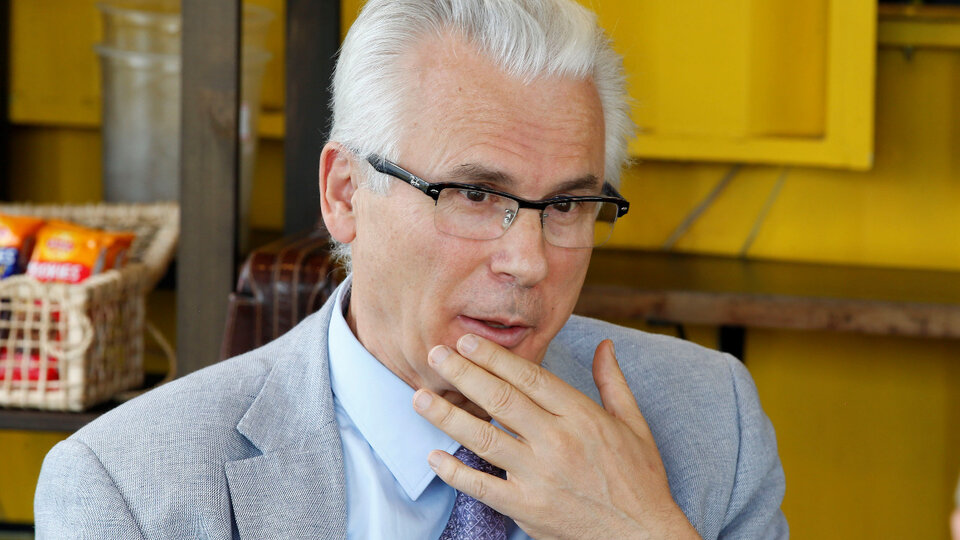
[ad_1]
The United Nations Human Rights Committee has ruled that former Spanish judge Baltasar Garzón has been disqualified in arbitrary proceedings. In 2012, the lawyer was disqualified for 11 years for procrastinating while investigating the Gürtel case, a major corruption plot involving the then-ruling conservative People’s Party. Garzón is internationally recognized for attempting to extradite Chilean dictator Augusto Pinochet in 1998. The UN committee demanded effective redress from Spain because the Supreme Court (TS) violated its presumption of innocence.
“This is the first time that the Committee has pronounced and condemned a State for use of the criminal law against a judge in the framework of his functions, thus establishing a new jurisprudence”, specifies the group of experts in the press release. Magistrate Baltasar Garzón, 65, a former judge of the Spanish National Court was prosecuted and tried in 2012 for allegedly procrastinating in two cases of high political relevance in Spain. “Judges should be able to interpret and apply the law without fear of being punished or judged for the content of their decisions. This is essential to preserve judicial independence, ”said José Santos País, member of the UN Committee.
Franco case
On the one hand, in the case of Francoism, Garzón “assumed the powers to investigate enforced disappearances during the civil war and the dictatorship of General Francisco Franco”, the committee notes. In the press release published on Thursday, the commission specified that the magistrate’s decisions “constituted at least a plausible legal interpretation, the greater or lesser extent of which was examined on appeal, without it being inferred that the said decisions constituted faults. (…) capable of justifying their inability to perform their duties. ”The lawyer was acquitted of the Franco case.
Gürtel case
On the other hand, in the Gürtel case, that involved more than 30 businessmen and People’s Party positions (who ruled Spain during the trials of Baltasar Garzón), the lawyer intercepted wiretaps between the defendants and their representatives to prevent the commission of crimes. “The interpretation of (Garzón) with which other judges and the prosecutor’s office agreed did not constitute serious behavior or incompetence that could justify his criminal conviction,” the committee said in the statement. In this case, the magistrate was convicted of procrastination and dismissed from his post for 11 years..
In 2016, the judge lodged a complaint against Spain with the UN Human Rights Committee, body responsible for ensuring compliance with the International Covenant on Civil and Political Rights by signatory states, alleging to have been the victim of multiple violations of his human rights during these two processes.
“Arbitrary and unpredictable”
“The Committee emphasizes that the conviction for procrastination against Garzón was ‘arbitrary and unpredictable’ because it was not based on sufficiently explicit, clear and precise legal provisions”, details the UN declaration with reference to article 15 of the International Covenant on Civil and Political Rights – to which Spain is a signatory – which establishes the principle of legality and predictability according to which “No one can be condemned for acts which were not foreseen in a sufficiently explicit way at the time when they were committed”The committee warns in its press release.
The Committee also noted that “even in the event that Garzón had made a miscarriage of justice, this should have been corrected by a review by a higher court and not by the criminal prosecution of the former judge”. In this direction the UN group of experts concluded that Garzón did not have the right to be tried by an impartial tribunal. “Some TS judges who tried him intervened in both cases, despite Garzón’s request to challenge them, ”they detailed in the text. “The processes were processed simultaneously; oral tests for both causes took place five days apart; and the sentences were handed down 18 days apart “they add.
The expert group also criticized the fact that Garzón did not have access to a second instance to appeal. “He was tried in the first and only instance by the Supreme Court, the highest Spanish judicial body,” they said in a statement in which he also They noted that Spain has “the obligation to erase the author’s criminal record and provide him with adequate compensation for the damage suffered”.
The lawyer had been practicing the profession for over 30 years when they forced him to retire. “They issued seven resolutions in one day to favor my suspension when I had already requested the transfer to the prosecutor’s office of the International Criminal Court, there was a particular interest in it being so“Garzón said when asked by the newspaper The country from Spain. “My family has suffered a lot. One of the things that gave me this opinion the most was that my mother was able to see it. (…) He told me that he knew it from the start, but that it is good that they recognize it, that justice be done, declared the magistrate who specified that he will ask for his reinstatement. in the judicial career. “I am a judge, it is as if I had the impression (…) that I have to ask because I know that they are not going to do it by profession,” Garzón told the Spanish morning newspaper. .
.
[ad_2]
Source link
 Naaju Breaking News, Live Updates, Latest Headlines, Viral News, Top Stories, Trending Topics, Videos
Naaju Breaking News, Live Updates, Latest Headlines, Viral News, Top Stories, Trending Topics, Videos